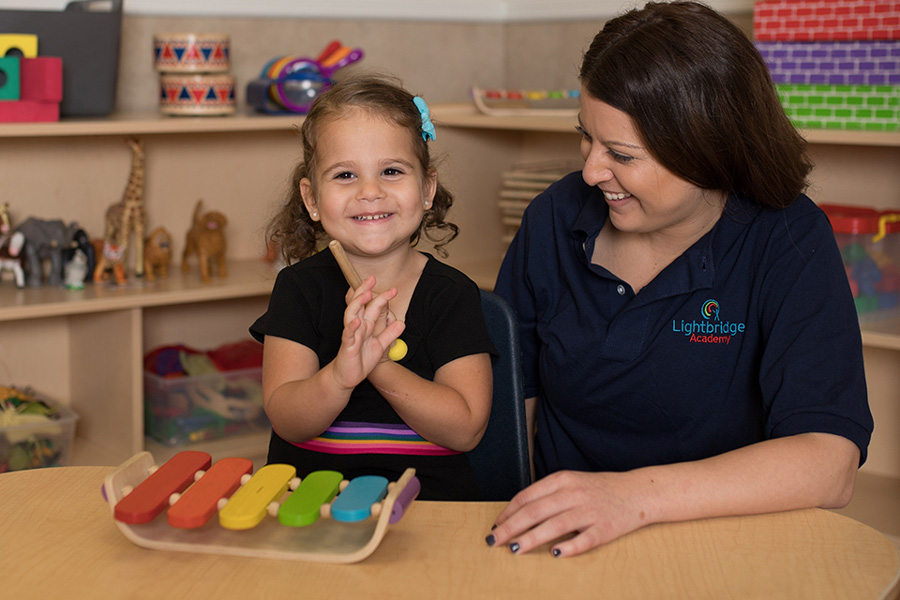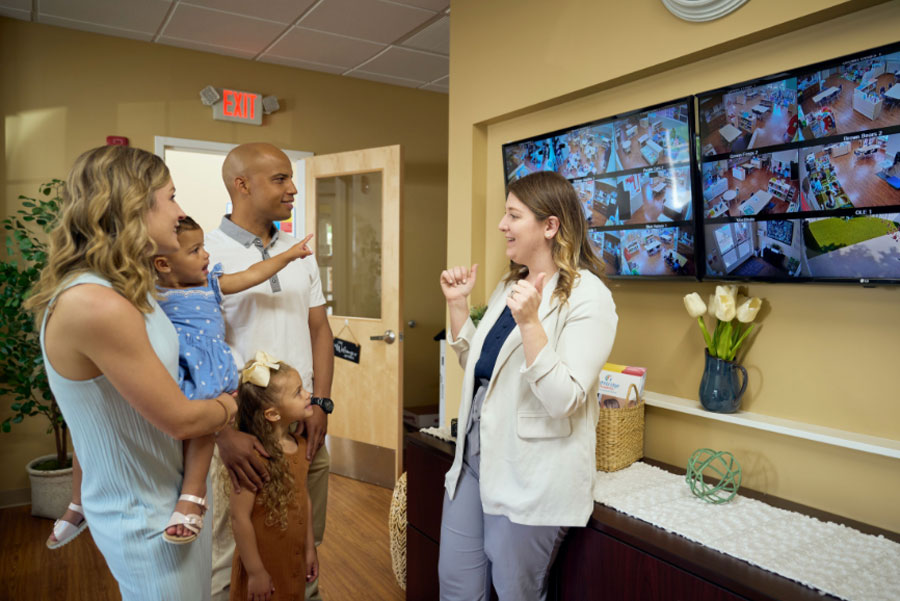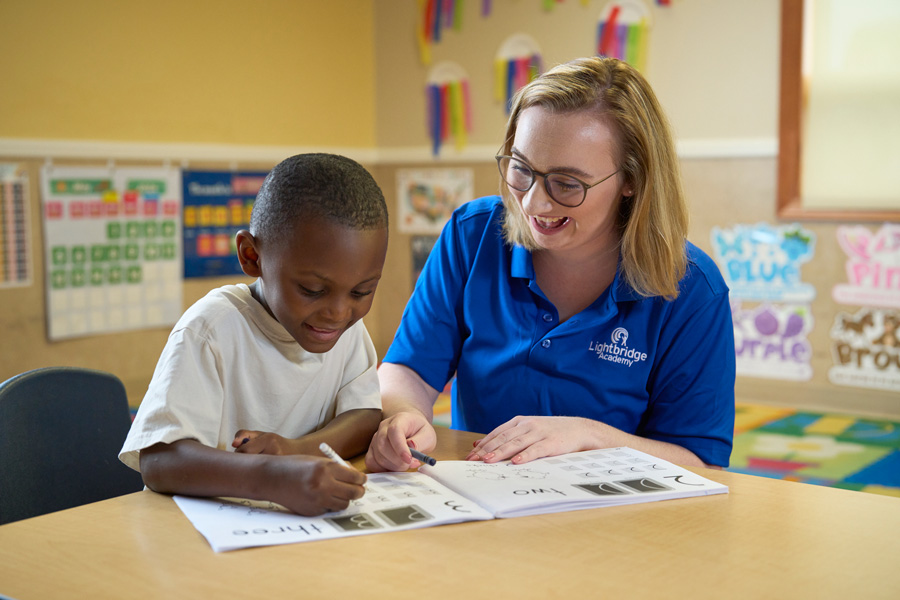As a parent, you know that every interaction your infant has with their new world forms an important part of their development. When you work or need the time to tend to other responsibilities, having your child in a loving and reliable infant care program can make a huge difference in your life and in your child’s development.
At Lightbridge Academy, we take pride in helping families ensure their infants get a wonderful start as they embark on this new exciting journey of growing into the person they will become. We take every opportunity to promote their overall development and well-being through individualized attention from their nurturing infant caregivers.
At the same time, we bring the fundamentals of learning to each interaction, providing the perfect balance for infants to achieve important developmental milestones in a warm and loving environment.
5 Ways Infant Care Makes a Difference in Your Child’s Development
Research has shown that high-quality early child care can have a positive impact on child development.
When looking for infant care that works for your family, here are some benefits to consider:
1. Do they provide opportunities for brain development?
When you choose infant care from Lightbridge Academy, your child will benefit from regular learning activities that stimulate early brain development. The infant curriculum helps them explore and investigate the world around them while also building important skills such as object permanence and rationalization. All of their amazing little discoveries are celebrated along the way!
2. Do they nurture social and emotional skill development?
In the infant care environment, babies have the opportunity to develop social and emotional skills in a way that they may not be able to at home. With plenty of daily interactions with other children and caregivers, babies will learn to share and play with others, work on their communication skills, and start to form social bonds with their new friends. Our nurturing caregivers build trust with our littlest learners through encouraging smiles, warm embraces, and soothing words to give babies confidence and to lay the foundation for developing healthy relationships.
3. Do they support physical development?
Infants who are just learning what their bodies can do benefit from repetition and opportunities to engage in activities designed to help them build their fine motor skills and explore the possibilities of movement in space. Our teachers support their developing hand and finger dexterity, hand-eye coordination, and more, from rolling over to sitting up, crawling, and taking those precious first steps.
4. Do they promote early language skills?
Teaching babies sign language empowers them to actively participate in communication. It gives them a sense of control and the independence to reduce pre-verbal frustration by providing them the tools to communicate their wants and needs as early as possible.
The Lightbridge Academy curriculum promotes flourishing language skills through the use of American Sign Language (ASL) and interactions with teachers who help infants move through the stages of hearing and processing new sounds to palate development and self-expression. This will lay the foundation for effective communication skills.
5. Do they follow a consistent daily structure?
Infants thrive in a structured environment with a consistent daily routine, and that’s exactly what we offer in our infant program. A regular daily routine helps regulate sleep cycles and encourages healthy hygiene habits. When infants know their needs will be met, they can stay balanced and grounded even as their bodies and capabilities grow and change rapidly.
To learn more about the Lightbridge Academy infant program, find the center nearest you and schedule a tour here!






